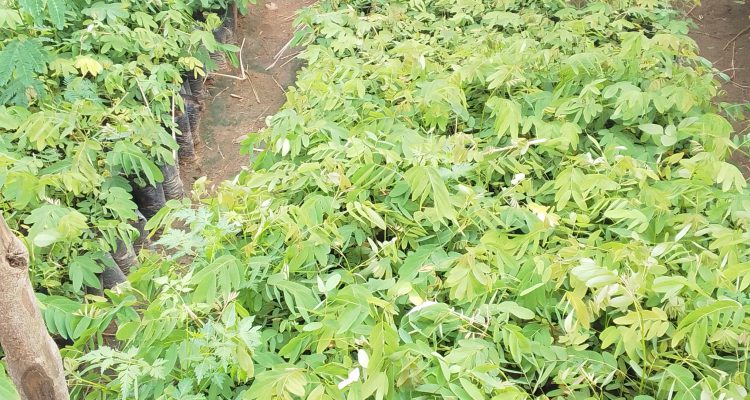
As the climate gets hotter and drier, farmers in Malawi are finding it harder to grow crops and earn an income despite being one of the least contributors to carbon emissions.
The Government of Malawi is working with support from multi-lateral partners tirelessly to change this narrative—through a range of climate-smart interventions that help mitigate the impact of climate change by rejuvenating agricultural land, conserving moisture, using water in the most efficient possible way, afforestation, land reclamation and river bank protection, among others.
As an example of climate-smart interventions in action, members of Malikula catchment in Traditional Authority Nkaya in Balaka district have taken a bold step in making sure there are various measures aimed at scaling up agricultural productivity.
“Since the inception of the program in 2022, we have constructed stone bunds and swales to reduce the rate of land degradation, which has been a major setback in terms of agricultural production.
“In some areas, we had a lot of gullies, but due to various interventions, we are slowly able to fill up the gullies, and there is a reduction of soil erosion,n, which is necessitated by water run-off,” says Cosmas Peter, a local farmer and also a foreman in the programme.
According to Cosmas, communities in the area have together harnessed various interventions because they have already seen the benefits of adopting such climate-smart activities in their daily livelihoods.
He says: “This is a hunger-prone area. We don’t harvest enough yields year in and year out. The programme has changed the narrative such that we can harvest bumper yields even in the circumstances of dry spells because the interventions we are carrying out help to maintain moisture content in the soil.”
Thandi Matemba is one of the community facilitators working in the program in the Muthe-Chigumula catchment in the same area. She credits the programme for revitalizing the livelihoods of her community members, whom she says were victims of various climatic shocks.
“We are happy with the CSPWP because our livelihoods have significantly transformed. Various smallholder farmers in our area have now adopted interventions in the programme and this has assisted in building resilience to climatic change,” said Matemba.
In a further example of the community commitment to using climate-smart agriculture techniques, members of the Muthe-Chigumula catchment area are also protecting the Mpalapata river banks by constructing stone bunds to reduce water run-off and help in land conserving the river. This has reduced the damage down the river which is usually associated with flooding of the river.
CSPWP desk officer responsible for Balaka district, Silence Semani, is excited with the commitment displayed by participants in the programme.
“When we were starting our interventions in 2022 we had 18 catchments and around 18,000 beneficiaries. Currently, the number of participants has steadily to 23, 000 with 18 catchments across the district.
According to Semani, participants in the program work in a cycle of 30 days, and they receive K1,600 per day, which translates into K48,000 in a month.
The CSPWP is supported by the multi-donor trust fund and aims at supporting communities to build resilience through social support as well as creating assets that promote resilience in the communities.














